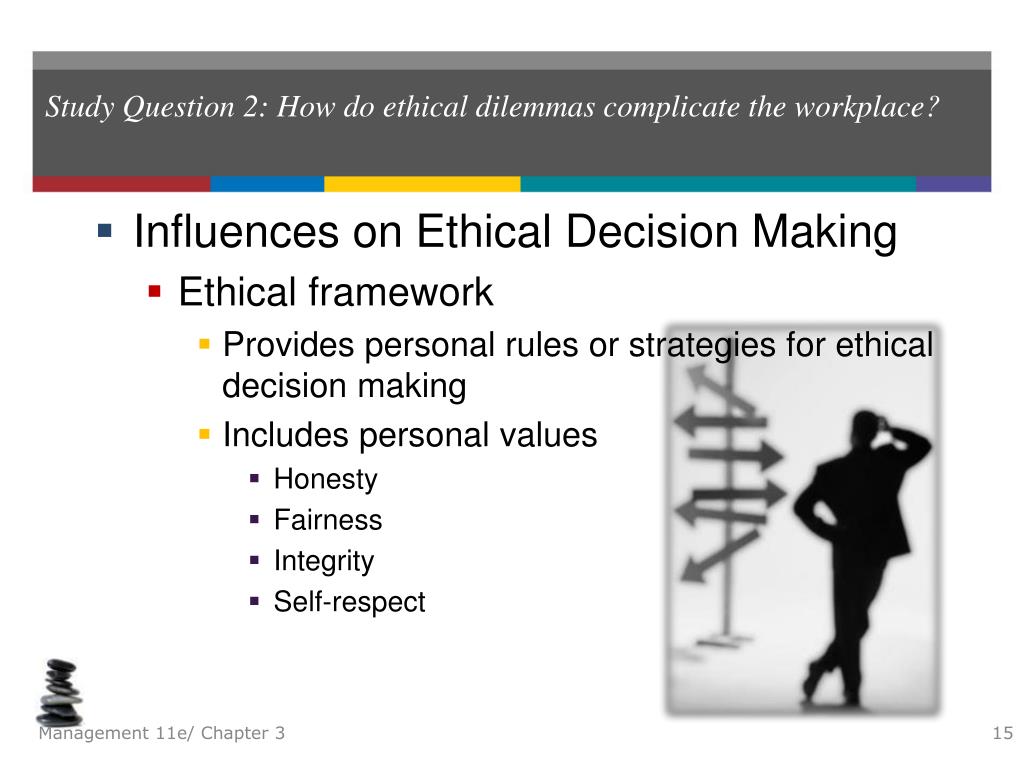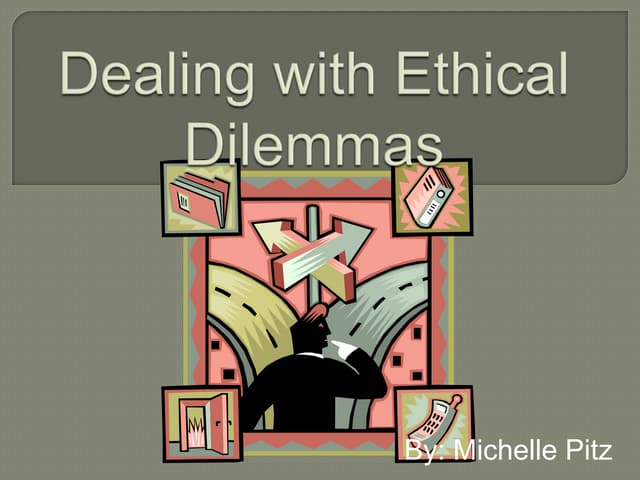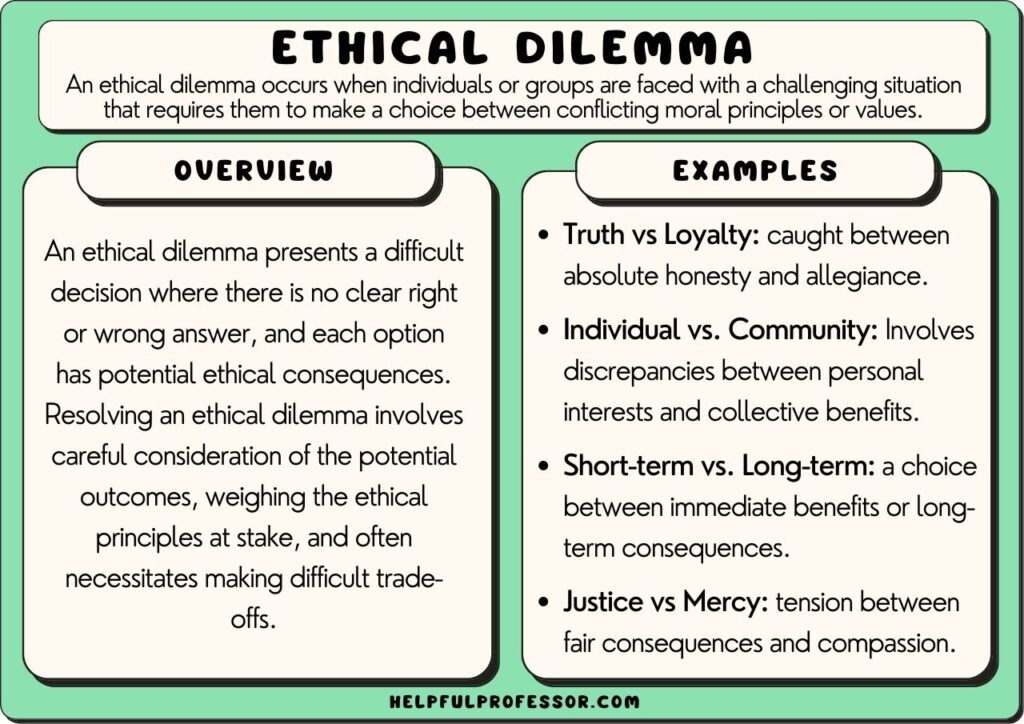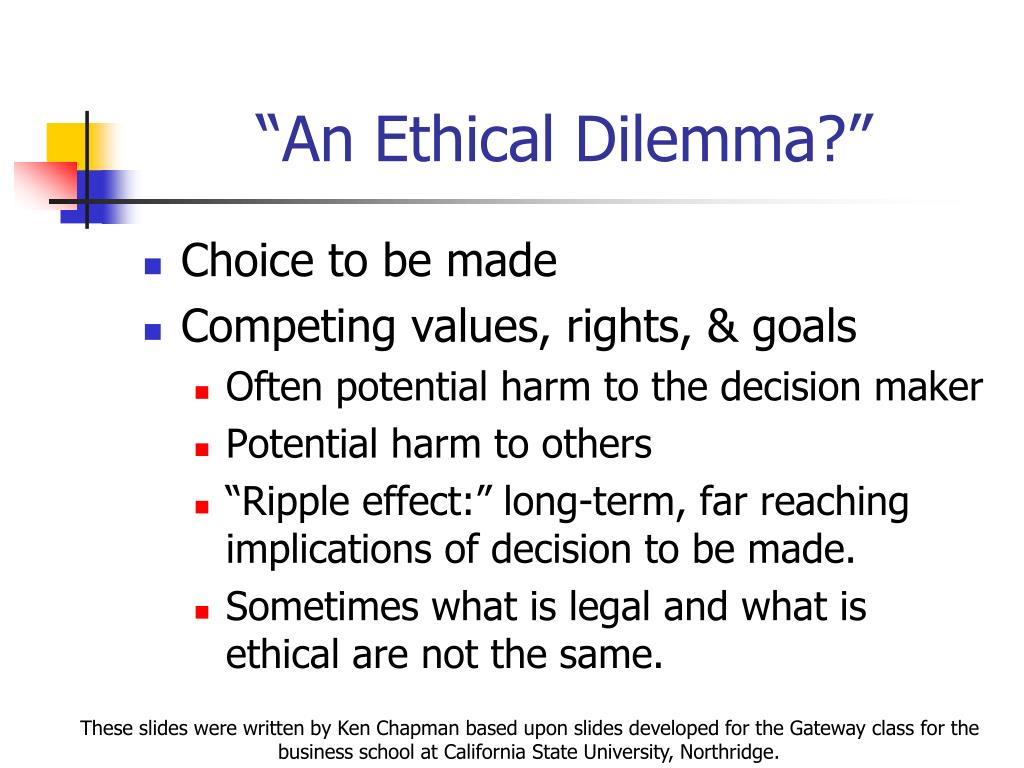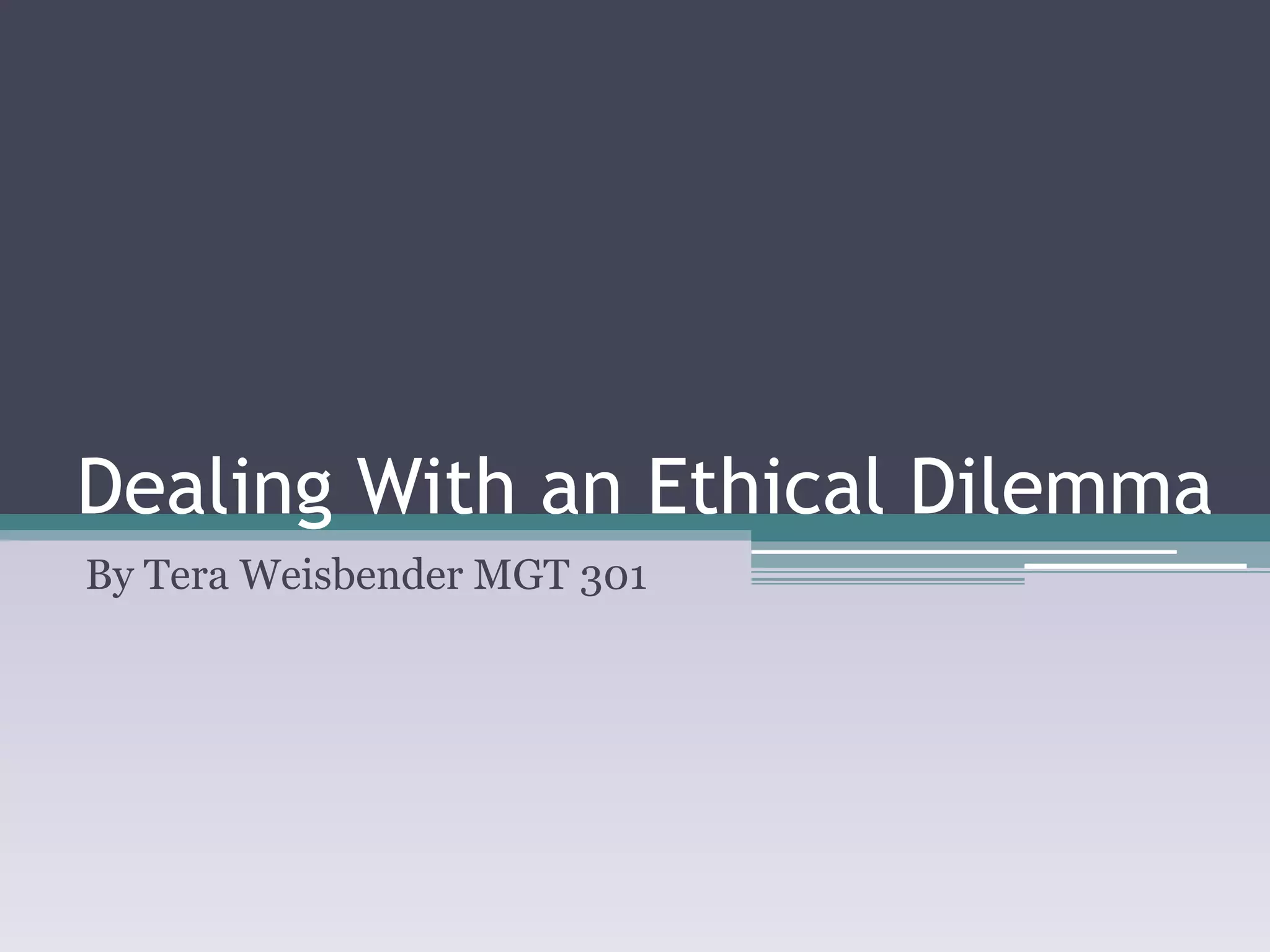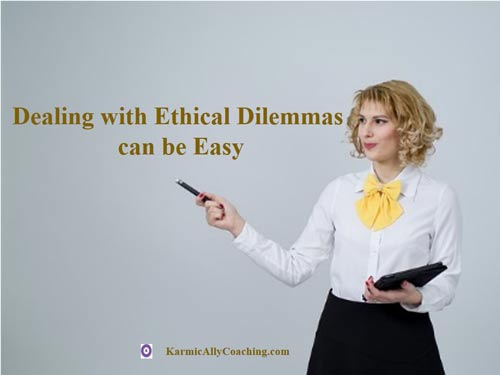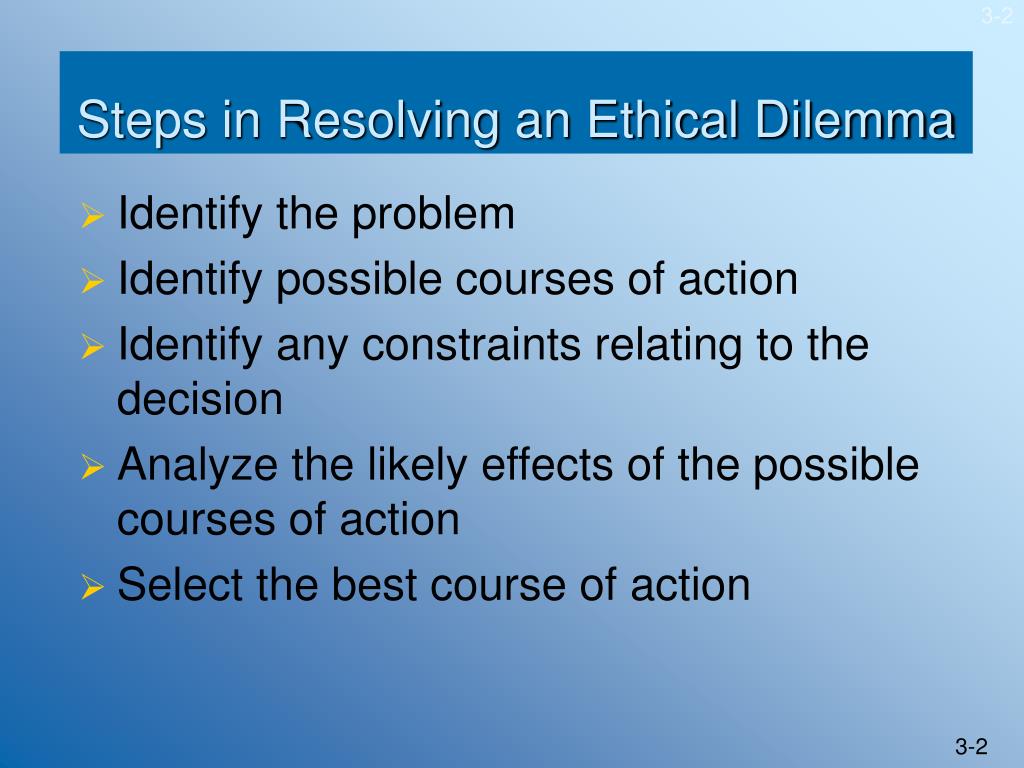How Do You Handle An Ethical Dilemma
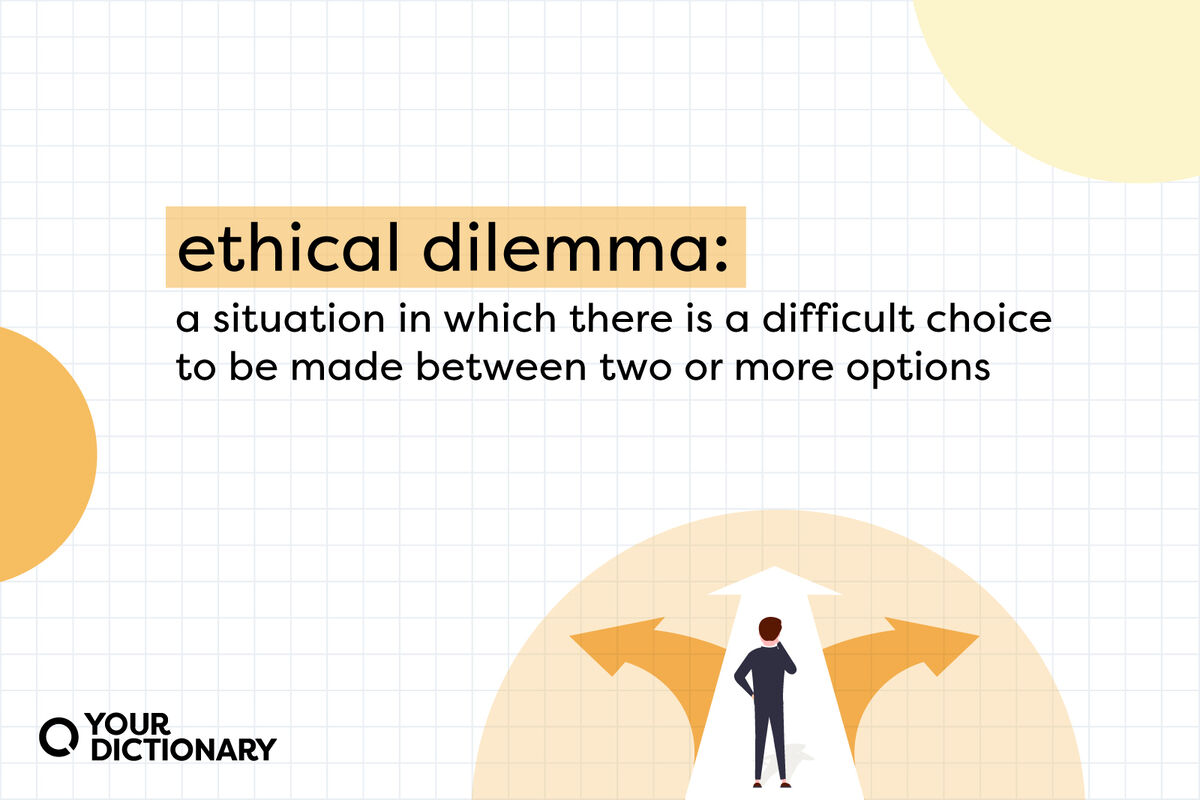
Imagine facing a situation where every choice feels wrong, where upholding one moral principle means violating another. This isn't a hypothetical scenario; it's the reality of ethical dilemmas, challenges that plague professionals across industries and touch everyday lives.
Navigating these complex moral mazes requires a structured approach, a framework that helps individuals and organizations weigh competing values, consider potential consequences, and ultimately make defensible decisions.
The Core of Ethical Decision-Making
At its heart, ethical decision-making is about aligning actions with values. The "nut graf" of this process lies in understanding the conflicting principles, identifying stakeholders, and evaluating the potential impact of each course of action.
According to the Markkula Center for Applied Ethics at Santa Clara University, a robust ethical framework typically involves recognizing the ethical issue, getting the facts, evaluating alternative actions, making a decision, and then reflecting on the outcome.
A Step-by-Step Approach
1. Identify the Ethical Issue: The first step is pinpointing the precise ethical conflict. This involves asking crucial questions: "What makes this a moral issue?" and "Whose interests are at stake?"
For example, a software engineer discovering a security flaw in a widely used application faces a dilemma. Do they prioritize user safety by immediately disclosing the vulnerability, potentially leaving users vulnerable to exploitation during the patching process, or do they delay disclosure to allow the company time to fix the issue, risking a breach in the meantime?
2. Gather the Facts: A thorough understanding of the situation is paramount. This includes collecting all relevant data, identifying key stakeholders, and understanding potential consequences of various actions.
3. Evaluate Alternative Actions: Explore different options, considering the ethical principles that apply to each. Consult ethical theories, such as utilitarianism (maximizing overall well-being), deontology (following moral duties), and virtue ethics (acting in accordance with virtuous character traits) for guidance.
4. Make a Decision and Test It: After careful consideration, select the best course of action. Before acting, test your decision. Would you be comfortable if your actions were reported on the front page of the newspaper? Would your colleagues approve?
5. Act and Reflect: Implement the decision with a commitment to transparency and accountability. After the fact, reflect on the process and the outcome. What lessons were learned? How can similar dilemmas be approached more effectively in the future?
Perspectives on Ethical Frameworks
Different frameworks exist to guide ethical decision-making. Utilitarianism, championed by philosophers like John Stuart Mill, focuses on maximizing happiness and minimizing suffering for the greatest number of people.
Deontology, associated with Immanuel Kant, emphasizes moral duties and rules, regardless of consequences. A deontological approach might prioritize honesty, even if it leads to negative outcomes.
Another framework, Virtue Ethics, emphasizes the importance of cultivating virtuous character traits, such as honesty, compassion, and courage. Aristotle is a key figure in virtue ethics.
Organizations often develop codes of ethics to provide guidance to employees. These codes outline the company's values and principles, offering a framework for resolving ethical dilemmas specific to the industry.
"A well-defined code of ethics helps employees navigate complex situations and promotes a culture of integrity," explains Dr. Anya Sharma, a professor of business ethics at the University of California, Berkeley.
Challenges and Considerations
Ethical dilemmas are rarely clear-cut. Conflicting values, ambiguous information, and external pressures can complicate the decision-making process.
Bias is a significant challenge. Unconscious biases can cloud judgment and lead to unfair or discriminatory outcomes.
Organizational culture also plays a vital role. A culture that prioritizes profits over ethics can create an environment where ethical compromises are normalized.
Looking Ahead: Building Ethical Resilience
In an increasingly complex world, ethical dilemmas are inevitable. Building "ethical resilience" – the ability to consistently make sound ethical judgments, even under pressure – is crucial for individuals and organizations alike.
This involves ongoing ethical training, fostering open communication, and creating a culture of accountability.
By embracing a structured approach to ethical decision-making and prioritizing ethical values, we can navigate complex challenges and build a more just and equitable future. The ability to confront these dilemmas head-on is not just a matter of professional responsibility, but a fundamental aspect of responsible citizenship.
